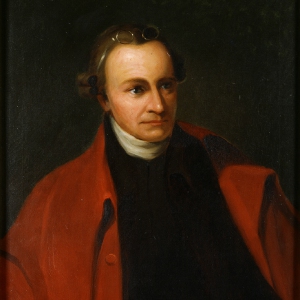My Turn: Why Joe Biden should withdraw

President Joe Biden speaks during a presidential debate with Republican presidential candidate former President Donald Trump, Thursday, June 27, 2024, in Atlanta. AP PHOTO/GERALD HERBERT
| Published: 07-18-2024 3:49 PM |
Joe Biden faces a wrenching decision: to withdraw or to stay on as Democratic nominee for the presidency of the United States. His disastrous debate performance on June 27 reinforced an image that many voters held of the president: that he is too old to serve as president for another term.
Many Democrats are also concerned that Biden cannot prosecute the campaign against Trump, whose many lies went unchallenged during the debate. Difficult though it is, I have come to the conclusion that President Biden should withdraw from the race and pass the torch on to a new Democratic standard bearer. Here are three reasons I have reached this conclusion.
Well before the debate of June 27, President Biden’s approval ratings were perilously low. In a May Gallup poll, Biden’s approval rating stood at 39%. This is very similar to the ratings of other one-term presidents who lost their bid for reelection. For comparison’s sake, in May 1980, Jimmy Carter’s approval rating stood at 38%; in May 1992, George H.W. Bush had an approval rating of 40%; and in May 2020, Donald Trump was at 49%.
Voters’ assessments of Biden’s ability to handle the economy and the border crisis are similarly weak. All of this is to point out that Biden had serious weaknesses as a candidate well before the debate. And the debate did nothing to change these perceptions.
The debate of June 27 did major damage to Biden’s ability to win the election. Subsequent interviews were not very reassuring. The debate was held on Biden’s terms: much earlier than any other presidential debate; with strict limits on how long the candidates could speak, and with moderators who had the ability to cut off the microphones.
In spite of all this, Biden’s performance was somewhere between unsteady and awful. Debates provide candidates with the opportunity either to reinforce a positive image or change negative perceptions of the candidates. Biden’s goal was to dispel public fears that he is too old to serve another term. He did just the opposite.
Biden is not the first candidate to fail in his mission to alter pubic perceptions. In a 1988 debate, when Democratic candidate Michael Dukakis was asked how he would respond if his wife were raped and murdered, he responded icily, and in so doing, failed to dispel the view that he was a cold-blooded technocrat. In 1992, in the first-ever Town Hall debate, President George H.W. Bush was caught looking impatiently at his watch while a woman in the audience asked a question. This suggested to viewers that the “blue-blooded” president really did not want to be there to address voters’ concerns.
Article continues after...
Yesterday's Most Read Articles
Perhaps the most relevant example comes from Ronald Reagan in 1984. Amid public concern that Reagan, at age 73, was too old to serve another term, Reagan used the debate to crack a joke about his opponent’s (Walter Mondale’s) “youth and inexperience.” Reagan accomplished what Biden failed to do: convince voters that he is still up to the task of running a full throttle campaign and governing for four more years.
The damage inflicted on Biden in this debate cannot be overstated and cannot be undone.
Historically, the Democrats have benefited from the campaign theme of generational change. It excites and motivates voters to turn out. Bill Clinton was 22 years younger than George H.W. Bush when he was elected in 1992. Similarly, Barack Obama was 25 years younger than John McCain when they faced off in 2008. Both of these Democrats used the “generational change” argument to maximum advantage. Among other benefits, this contrast is more likely to attract younger voters to the Democratic fold than is a contest between two octogenarians.
I obviously do not know who the Democrats would nominate if Biden decides to withdraw. But the leading contenders are all much younger than Donald Trump. Kamala Harris is 19 years younger than Trump; Gretchen Whitmer is 27 years younger than Trump; Gavin Newsom is 22 years younger than Trump. A younger Democratic candidate would create a new campaign dynamic and would give voters a choice between the past and the future.
Howard Gold is a professor of government at Smith College in Northampton.






 As I See It: How liberty itself killed liberalism in America
As I See It: How liberty itself killed liberalism in America My Turn: Invest in hunger-free campuses to make free college truly work
My Turn: Invest in hunger-free campuses to make free college truly work Beth Girshman: Support federal funding of libraries and museums
Beth Girshman: Support federal funding of libraries and museums Dale Moss: Trump, Musk actions will cause long-term damage
Dale Moss: Trump, Musk actions will cause long-term damage
